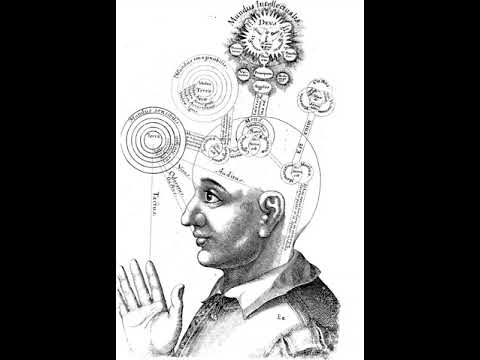This is an audio version of the Wikipedia Article:
Consciousness
Listening is a more natural way of learning, when compared to reading. Written language only began at around 3200 BC, but spoken language has existed long ago.
Learning by listening is a great way to:
– increases imagination and understanding
– improves your listening skills
– improves your own spoken accent
– learn while on the move
– reduce eye strain
Now learn the vast amount of general knowledge available on Wikipedia through audio (audio article). You could even learn subconsciously by playing the audio while you are sleeping! If you are planning to listen a lot, you could try using a bone conduction headphone, or a standard speaker instead of an earphone.
You can find other Wikipedia audio articles too at:
https://www.youtube.com/channel/UCuKfABj2eGyjH3ntPxp4YeQ
You can upload your own Wikipedia articles through:
https://github.com/nodef/wikipedia-tts
“The only true wisdom is in knowing you know nothing.”
– Socrates
SUMMARY
=======
Consciousness is the state or quality of awareness or of being aware of an external object or something within oneself. It has been defined variously in terms of sentience, awareness, qualia, subjectivity, the ability to experience or to feel, wakefulness, having a sense of selfhood or soul, the fact that there is something “that it is like” to “have” or “be” it, and the executive control system of the mind. Despite the difficulty in definition, many philosophers believe that there is a broadly shared underlying intuition about what consciousness is. As Max Velmans and Susan Schneider wrote in The Blackwell Companion to Consciousness: “Anything that we are aware of at a given moment forms part of our consciousness, making conscious experience at once the most familiar and most mysterious aspect of our lives.”Western philosophers, since the time of Descartes and Locke, have struggled to comprehend the nature of consciousness and identify its essential properties. Issues of concern in the philosophy of consciousness include whether the concept is fundamentally coherent; whether consciousness can ever be explained mechanistically; whether non-human consciousness exists and if so how it can be recognized; how consciousness relates to language; whether consciousness can be understood in a way that does not require a dualistic distinction between mental and physical states or properties; and whether it may ever be possible for computing machines like computers or robots to be conscious, a topic studied in the field of artificial intelligence.
Thanks to developments in technology over the past few decades, consciousness has become a significant topic of interdisciplinary research in cognitive science, with significant contributions from fields such as psychology, anthropology, neuropsychology and neuroscience. The primary focus is on understanding what it means biologically and psychologically for information to be present in consciousness—that is, on determining the neural and psychological correlates of consciousness. The majority of experimental studies assess consciousness in humans by asking subjects for a verbal report of their experiences (e.g., “tell me if you notice anything when I do this”). Issues of interest include phenomena such as subliminal perception, blindsight, denial of impairment, and altered states of consciousness produced by alcohol and other drugs, or spiritual or meditative techniques.
In medicine, consciousness is assessed by observing a patient’s arousal and responsiveness, and can be seen as a continuum of states ranging from full alertness and comprehension, through disorientation, delirium, loss of meaningful communication, and finally loss of movement in response to painful stimuli. Issues of practical concern include how the presence of consciousness can be assessed in severely ill, comatose, or anesthetized people, and how to treat conditions in which consciousness is impaired or disrupted. The degree of consciousness is measured by standardized behavior observation scales such as the Glasgow Coma Scale.
wikipedia tts
Source



